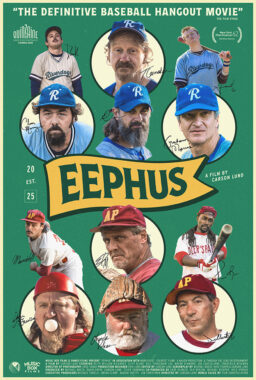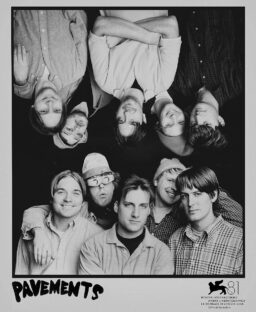Q. I go to UCLA and live in Westwood. Obviously I live around a great number of theaters and very close to Beverly Hills, Bel Air, Brentwood, and Holmby Hills. So, when movie stars want to go to movies they go around here. I went to see “Primal Fear.” While we were in line Woody Harrelson bought a ticket and went in. OK. Not so bad. He wasn’t looking for attention but unfortunately he received it. Before my girlfriend and I got to the ticket counter, Tom Cruise and Nicole Kidman walked by (quickly) and as I watched heads turn everywhere: In line, on the corner, and all along the sidewalk up to and I suppose in the movie they went to see (“The Birdcage“). Now for my question. They are actors, they are people, they feel, talk, dress like everyone else. People point, stare, gawk, and follow their every move. Not very conducive to a normal lifestyle. They chose that profession and are not blind to reality. They know that stars are followed, stared at, touched, etc. I would suppose two actors such as Cruise and Kidman would have the ability and sources to ask for a copy of “The Birdcage” for their personal viewing. That would allow them the luxury of never being gawked at. Yet they CHOOSE to go out in public. They also know the consequences. They get upset knowing they can never sit down at a corner coffee shop and drink coffee without a horde descending upon them. Should they expect a normal life? Are the outings they make an attempt to hold up the mask of normalcy or are they masochists who seek out problems with their every excursion into the land of the normal? (Frank Chartrand, Westwood, Calif.)
A. When a movie is on top of the box office charts, the studio does not have an “extra” print to send to every star who wants to see it. But setting that issue aside, I think movie stars should have the right to appear in public without being made uncomfortable by ill-mannered yahoos. A person of taste and manners will notice a star, be pleased to see the star, and grant them their privacy. A nod or a smile is fine. Shouting out their names or pointing them out to other people is a way of indicating you have not made it as far up the evolutionary ladder as you think. Asking for an autograph on any occasion other than an autograph signing is an invasion of privacy and boorish behavior. I once spent a day with Clint Eastwood during which he posed (I counted) for 62 photographs and signed more than 100 autographs. For a member of the public, it only takes a moment to disturb a star’s privacy. For the star, it is a lifetime sentence–a celebrity version of the Chinese water torture. No thoughtful and considerate person would ever want to contribute to that.
Q. Is it possible for a beginning actor to “make it” in movies if they do NOT have blue eyes? It’s getting so now that even black actors stand a better chance if they have blue eyes (one is the actress who played a soldier in Danny DeVito’s “Renaissance Man” and is also in “Clueless“–Stacey Dash). Add to the list: Tom Cruise, Robin Williams, Don Johnson, Brooke Shields, Kurt Russell, John Travolta, Richard Gere,
Johnathan Taylor Thomas, and rumor hath it that Brad Pitt wore brown contact lenses in “Seven” so he wouldn’t look so good. I feel the trend toward blue-eyed actors has been in place for a long time, and I just noticed it. If you are not interested in the movie, looking at eye color gives you something to do. (Don Howard, San Jose, Calif.)
A. How do you handle the black-and-white films?
Q. I was watching “Tonight Show” a few weeks ago and saw you on the same show with Dennis Miller. You and Gene were very complimentary to Miller (Gene at one point even suggesting that Dennis should be the Oscar host) and he seemed to return the favor. So I picked up a copy of Dennis’ new book, (italics) The Rants , and I was surprised to read a rant in which he denounces criticism and critics in general, saying that they are useless and arrogant. At the end he basically says that the next time you give a review, the American public should tell you to go **** yourself. I was wondering, did you know of this particular section of his book that night on the “Tonight Show,” and if so, did you ever get a chance to discuss it with him? (Jeff McGinnis, Bowling Green, Ohio)
A. I had no idea that, or anything else, was in his book. Funny that he’s so down on critics, since he kept interrupting during our segment with observations and suggestions, and during the commercial breaks kept shouting, “Hey, Jay, I got a great line you oughta use next!”
Q. Please tell me why in big budget movies you can often see the boom microphone in the picture. I have seen it frequently in many big budget pictures. The cinematographer must be incompetent to not notice this, along with the editors. Why do they leave it in? (Paul M. Nowak, Farmington Hills, Mich.)
A. The Answer Man gets this question about once a week, and answers it about every six months. When you can see the sound boom in a movie, it is usually not the fault of the filmmakers, but of the theater projectionist, who has framed the movie incorrectly. All movies contain more picture area than you are ever intended to see, in order to allow the picture to “bleed” over the sides of the screen. Sometimes a boom strays into the “head room,” but if the projectionist has done his framing correctly you will never see it.











